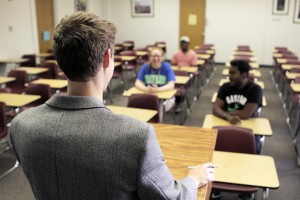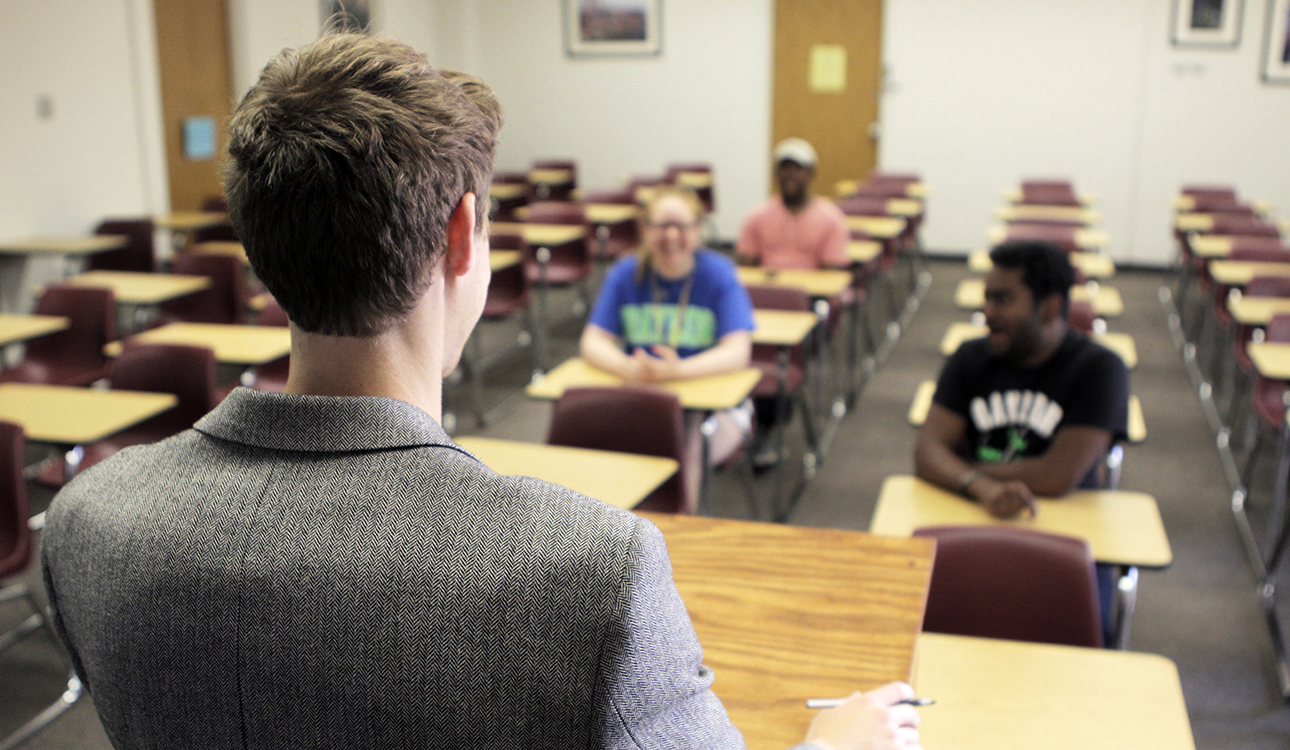
By Paula Ann Solis
Staff Writer
Skipping, ditching, playing hooky — an absence by any name can add up to a world of trouble at Baylor, where losing class time can result in losing credit.
“This semester I had a piano class that I failed due to absences alone,” said Keller freshman Esther Nyangani. “I understand that Baylor has their standards as a private school, but at the same time they need to understand and respect that we’re students, we do get tired and we have extracurricular activities that are university sponsored.”
Nyangani is a member of the Women’s Choir and said she often missed Monday and Wednesday classes because of performances and school sponsored events.
Three weeks ago, her professor called her into his office and said she would receive an F for the course, despite having a B+ average based on class work, because she had exceeded her maximum absence allowance.
Baylor’s School of Music, like several academic units at Baylor, retained the original 75 percent attendance requirement after the university abandoned the campus wide policy in 2011.
University officials now allow each school to dictate class policies after the U.S. Department of Education required universities with campus-wide attendance policies to keep a log — an act too difficult for Baylor, said Dr. Wesley Null, vice provost for undergraduate education.
The policy Baylor now follows is a liberal, all-campus one that grants professors final say on how attendance is monitored.
Even schools such as the College of Arts and Sciences, though it has a 75 percent class attendance requirement, allows professors to disregard or further tighten the reins on absences.
“Faculty members may establish more stringent requirements regarding attendance, punctuality, and participation,” according to Baylor’s student policies and procedures website. “Any attendance requirements and penalties for excessive absences will be set forth in the syllabus for each course.”
Nyangani said she was shocked because she thought she had gone through all the proper channels to excuse her absences. She spoke with the dean of her school to validate her absences as school related. Unbeknownst to Nyangani, that doesn’t mean much since excused absences are still counted against students if the professor so desires.
“It’s partially my fault,” Nyangani said. “I was under the assumption that if you turn in a dean’s note, like from high school, you’re excused and it does not count against you as an absence.”
Since having experienced this failure by absences, Nyangani said she is more diligent about understanding attendance policies for other classes and works closely with professors to understand where she stands.
“I’m not saying it’s entirely the policy’s fault; I will be honest, there was some negligence on my part,” Nyangani said.
The seriousness of absences is a concept learned early by Baylor students through mandatory Chapel freshman year.
But despite this lesson, even upper classmen get caught off guard by the penalties of absences.
Corpus Christi junior Amanda Yarger said excessive absences aren’t always the sign of laziness or lack of understanding. Some students have issues that attendance policies do not take into consideration.
“I have maxed out my absences for the last two years,” Yarger said. “When I took pre-cal, I failed by attendance. When I took history my sophomore year, my professor deducted my entire participation grade because, although I was an active member of class when I was there, had high test scores, and paid attention, he felt I didn’t deserve my full grade because of being gone.”
People have incorrectly stereotyped Yarger as lazy or apathetic, she said, but don’t know her whole story.
Yarger has a medical history that includes depression and anxiety, which makes attendance more difficult for her than most.
Medication is an option, she said, but she opted to not be medicated while in school and that choice has dire consequences.
“Relating this information is difficult to professors who openly tell their students that any absence outside of a doctor’s note is not permitted,” Yarger said. “Whether it be personal or family related, the attendance policy puts a strain on the professor and student relationship.”
Abandoning the liberal attendance policy is not likely considering the consensus among professors required, Null said.
“Faculty autonomy is an important issue to remember,” Null said. “We don’t tell instructors when to excuse or not to excuse an absence; that’s the prerogative of an individual professor. There is no way to come to a general consensus on what to do with excusing or not excusing absences because, if you get five professors in a room, you’ll probably get five different policies.”
Dr. Heidi Bostic, modern languages and cultures department chair and French professor, said students can plan ahead to avoid the penalties of absences.
Bostic teaches in the department and said language professors have a more rigorous attendance policy than other departments — 80 percent class attendance or an automatic F.
Attendance policies are often linked to a participation grade, which will decrease a student’s overall grade after each absence. This is an unfair practice, Yarger said.
“There are people who show up every day to browse Facebook or Twitter and don’t contribute to class discussion at all, but are technically present,” Yarger said. “I feel it would be a more productive system if participation was earned by the namesake — participating.”
Bostic said she realizes students will miss a class and that it is not a direct correlation to their participation. She said she encourages students to carefully read each course syllabus, save absences for sick days and take full advantage of the class time.
“There is a recognition that learning a language is sort of like practicing a musical instrument, something you really have to participate in,” Bostic said. “But participation is not simply attendance. It’s being on time, being prepared — that kind of thing. This policy is designed to encourage learning.”
The amount of time spent practicing those instruments, whether languages or pianos, will continue to vary from one professor to the next. The only thing left for students to do is set their alarms or accept the consequences.






